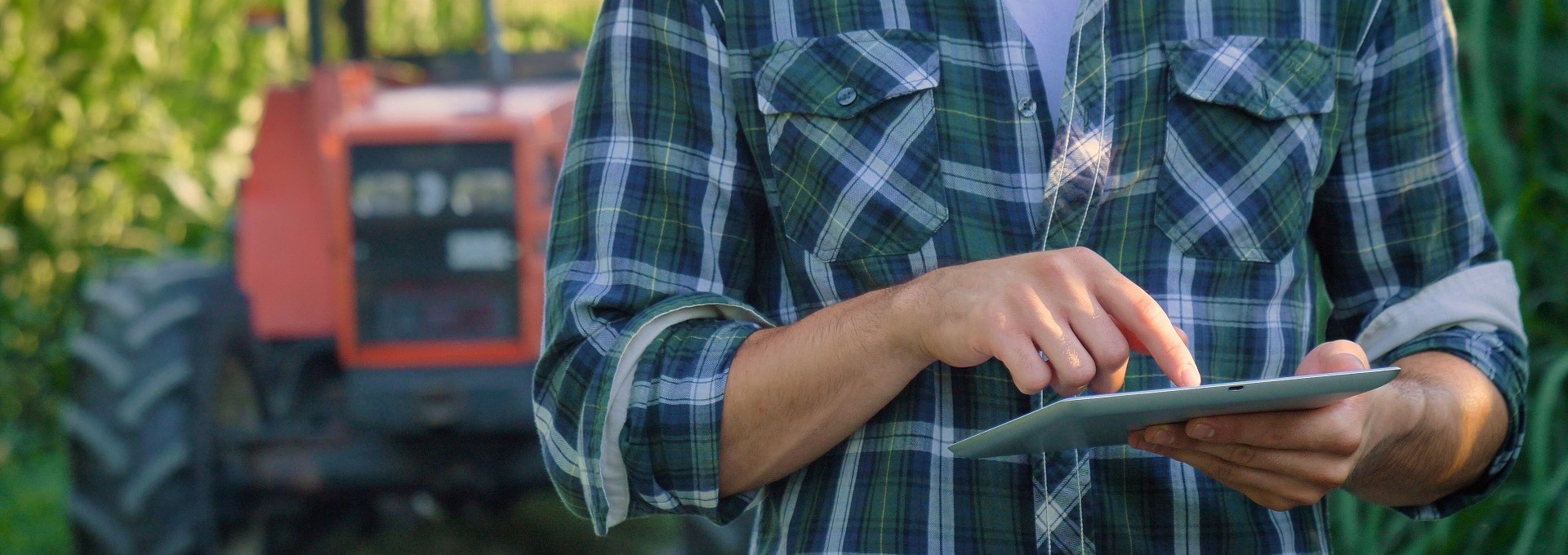Highlighted
Barcelona transforms developable land into agricultural land to preserve its last food growing spaces
La Ponderosa is a farm with almost seven hectares of orchards in the Vallbona neighbourhood of Barcelona that has been cultivated by the same family for decades. It is also the last plot of agricultural land on urban land and Barcelona City Council has decided to seal it off so that no construction can be done.
The plan, with short, medium and long-term actions, aims to protect valuable heritage sites such as the Rec Comtal (an open irrigation canal from the 10th century that still supplies the orchards and provided water to Barcelona) or the century-old Ritz Farm, which produced fruit, vegetables and poultry for the famous hotel using highly advanced systems at the time.
The featured news article is available at this link. You will also find more information about Vallbona's transformation here.
More agri-food news
#Agricultural Policy
The Government of Catalonia wants more than 50% of agricultural holdings to be sustainable
The sector will be able to access this certification through Sustainable Agricultural Production.
(Government of Catalonia)
#Innovation Tools for Agricultural Spaces
The agricultural test area of Sant Vicenç dels Horts receives a recognition award and continues to invest in machinery
The Sant Vicenç dels Horts Agrarian Test Space has emerged as the winner in the ecological experiences category at the 11th Baix Llobregat Cultural Recognition Awards ceremony, organised by the Baix Llobregat Regional Studies Centre. It also continues to invest in agricultural machinery, having acquired a tractor for entrepreneurs.
(RETA)
#Managed Forests
Collserola: safer and better preserved
Around thirty actions are planned until 2027 to improve and revitalise the Barcelona side of the Collserola Natural Park. There are actions aimed at fire prevention, the restoration of historic fountains and the improvement of signage for visitors, among others. There are also plans to continue with controlled grazing to clean the vegetation cover and promote the work carried out by the peasantry.
(Barcelona City Council)
#Urban Food Gardens
The Municipal Agroecological Garden of Barberà del Vallès is presented
The creation of this space is part of the Zero CO2 project in Barberà del Vallès, a key initiative to reduce carbon emissions in the municipality.
(Barberà del Vallès City Council)
#Water
Metropolitan farmers demand improved water management
They are calling for long-overdue investments to combat flooding and shortages.
(La Vanguardia)
#Climate Action
"The primary sector is essential to adapt to climate change"
The Catalan Department of Climate Action, Food and Rural Agenda is working on a strategy for adaptation to climate change and considers farmers to be a key element.
(Arrels)
A new Technical Dossier on 'Climate change and its impact on the primary sector' is published
One of the objectives of the Department of Climate Action, Food and Rural Agenda (DACC) is to improve the agri-food production system so that it is as environmentally friendly as possible. To achieve this, it is necessary to be aware, among other things, of the climate situation and its consequences. This new technical dossier is one more step towards expanding knowledge of how climate change affects different areas of the primary sector.
(Department of Climate Action, Food and Rural Agenda)
A study by UPF reveals the efficiency of traditional agriculture in the face of climate change
Research shows that small-scale rainfed agriculture provides innovative insights into sustainable agricultural practices. The full study can be found here .
(Arrels)
Ancestral, local and climate-change-resistant varieties: the challenge for the wine sector
The environmental adaptation of the vineyard is the focus of the first Sustainable Viticulture Congress held in Vilafranca del Penedès.
(Arrels)
'Zero Carbon': the project of CBCat, Vic City Council and the Catalan food industry to reduce emissions in the sector
The Blockchain Centre of Catalonia (CBCat), of the Barcelona Chamber of Commerce, has presented the 'Zero Carbon' project at Vic City Hall, an initiative to minimise the carbon footprint of the Catalan food sector. The project aims to quantify and certify the emissions attributable to each process in the food chain, as well as to encourage process optimisation.
(Vic City Council)
#Sustainable Food Systems
Are local products the solution to the food crisis?
In Baix Llobregat, the demand for local food increased during the lockdown due to shortages in supermarkets and showed that the consumption of local products generates a circular economy dynamic that benefits farmers, restaurateurs and businesses.
(El Llobregat)
#Generational Renewal
The Barcelona Provincial Council promotes an Action Plan for the Agrarian Generational Renewal in the Barcelona counties
During a participatory event held in the Montserrat Rural Park, the corporation reaffirmed its commitment to facilitating the incorporation of a new generation of farmers.
(BCN Smart Rural)
The Agricultural Schools launch a new mentoring project to accompany and advise young people with viable initiatives in the agricultural sector
The new Mentoring Project for Young Farmers is one of the actions planned within the Catalonia Generational Change Strategy for the period 2023-2027 and the III Programme for Women in the Rural and Maritime World 2022-2025.
(Department of Climate Action, Food and Rural Agenda)
#Agri-food Transformation
The implementation of shared workshops and slaughterhouses is key to improving the sustainability of the food system
The new 'Historia BCN Smart Rural' presents the collective facilities at a supra-municipal level promoted by the Barcelona Provincial Council with the aim of providing services to young entrepreneurs in the agri-food sector.
(BCN Smart Rural)
#Local Trade
'Good, healthy and from here' brings children and adolescents closer to consuming food responsibly
The project, promoted by the Barcelona Provincial Council's Trade Services Department, aims to raise awareness of school canteens that work with local production and processing companies, among other objectives.
(Earth Products Network)
#Agri-food Innovation
IRTA meets with agents from Barcelona and its surroundings to collect their research and innovation needs and concerns
This is the first institutional roundtable to be organised in this territory and, among other topics, challenges were discussed such as the treatment of the grey heron plague, soil improvement, the promotion of auxiliary fauna, training and transfer for the improvement of oils in the Montserrat Rural Park or the possible valorisation of wild boar meat.
(IRTA)
The Anoia Regional Council offers a series of talks on technology applied to the agricultural world
The presentations are part of the "Work, Talent and Technology" programme, promoted with the support of the Barcelona Provincial Council and the participation of more than twenty municipalities in the area.
(Anoia Regional Council)
#Food Heritage
Barcelona joins New York and Paris in claiming urban vineyards
The L'Olivera estate is part of the International Network of Cities with Vines. This entity, founded in Italy, aims to protect the rural, historical and natural heritage preserved by different urban wineries around the world.
(La Vanguardia)
#Culture
Alt Penedès will host a new large-scale music festival
From April 28 to 30, Ressons by Cruïlla will be programming around thirty concerts by contemporary artists, which will be spread across 21 stages throughout county.
(Arrels)
The Route of the Matonaires of Montserrat is born
This is a new initiative launched by the Montserrat Rural Park Association and the El Brogit Collective, which aims to recover and signpost the old paths used by the matoneras to travel from their farmhouses, located in the villages on the north side of the Mountain, to reach the Abbey of Montserrat.
(Montserrat Rural Park)
The Espai Montserrat is inaugurated in the new Cal Puigjaner Cultural Center in Olesa de Montserrat
The aim of this initiative is to pay tribute to the farmers, ranchers and producers of the park and to give visibility to this sector in a fresh and modern way.
(Montserrat Rural Park)
#Tourism
Catalonia promotes 32 projects to position itself as the European reference region for wine and food tourism
The initiative highlights the implementation of an innovative agrotourism project in the Agrarian Park of Baix Llobregat based on the promotion and dissemination of the values of the space and its actors and products through the implementation of an experiential marketing strategy focused on the Can Comas farmhouse. In addition, Bages will recover vats at the foot of the vineyard and dry stone huts, and itineraries will be created to learn about this heritage; and Anoia will have an experiential path related to olive trees and oil.
(Department of Business and Employment)
#Interviews
Mariona Morral: «I am amazed at how peasants create life: farming is a craf»
The Can Morral del Molino estate is a welcoming refuge among vineyards in the heart of the Montserrat Rural Park. A creative and persevering family lives in the manor house and works every day with the desire to maintain traditional crops and protect the agricultural landscape of the area.
(BCN Smart Rural)
Germán Domínguez: «The greatest satisfaction is to see a plant grow and feed people»
Nano Farinetes is a farmer from the Baix Llobregat Agricultural Park who grows zero-kilometre vegetables and sells them at the Saturday market in Sant Boi de Llobregat and in various restaurants. He started out at nineteen years old and has a lot of energy, and has been at the head of the company for eight years now.
(BCN Smart Rural)
Armand Suriñach: «There are people who are not sufficiently aware of how much it really costs to produce food and the risks that we farmers and peasants take»
At Mas La Baga de Vespella de Gurb, El Circell was born nine years ago, an organic and local agriculture company that advocates for the care of the territory. We spoke with the two founders, two strong, coherent people involved with other projects in the primary sector.
(BCN Smart Rural)
Anna Oliveras: «Wine tourism allows us to disseminate the wine culture and wine-growing tradition of Bages»
The owner of Ca la Julita, a 19th-century farmhouse located in Castellbell i el Vilar, explains how she took the step of converting the house into a tourist accommodation and its close link with wine tourism.
(Montserrat Rural Park)
Emma Rojas: «The accompaniment in the process of incorporation should be linked to the process of withdrawal of a generation that folds and that does not count on anyone in the last»
This shepherdess is one of the few women who shears animals professionally.
(ARCA)
Rosa Domènech: «From the Association of Women of the Rural World we want to influence and decide on the agricultural policies of the country»
The president of the Association of Women of the Rural World explains her goal of becoming a leading, expert and leading entity in the primary sector.
(ARCA)
#Opinion
Hunting, gastronomy and sustainable protein
In this article, Toni Massanés, director of the Alícia Foundation, argues that using game meat contributes to improving the sustainability of the food model.
(La Vanguardia)
Survive or change
In this article, Francesc Reguant, director of the Observatory of Agri-Food Economics of the College of Economists, argues that the devaluation of real agriculture has led to the creation of idealistic proposals that are neither meaningful nor viable.
(Via Empresa)
— BCN Smart Rural Editorial —



